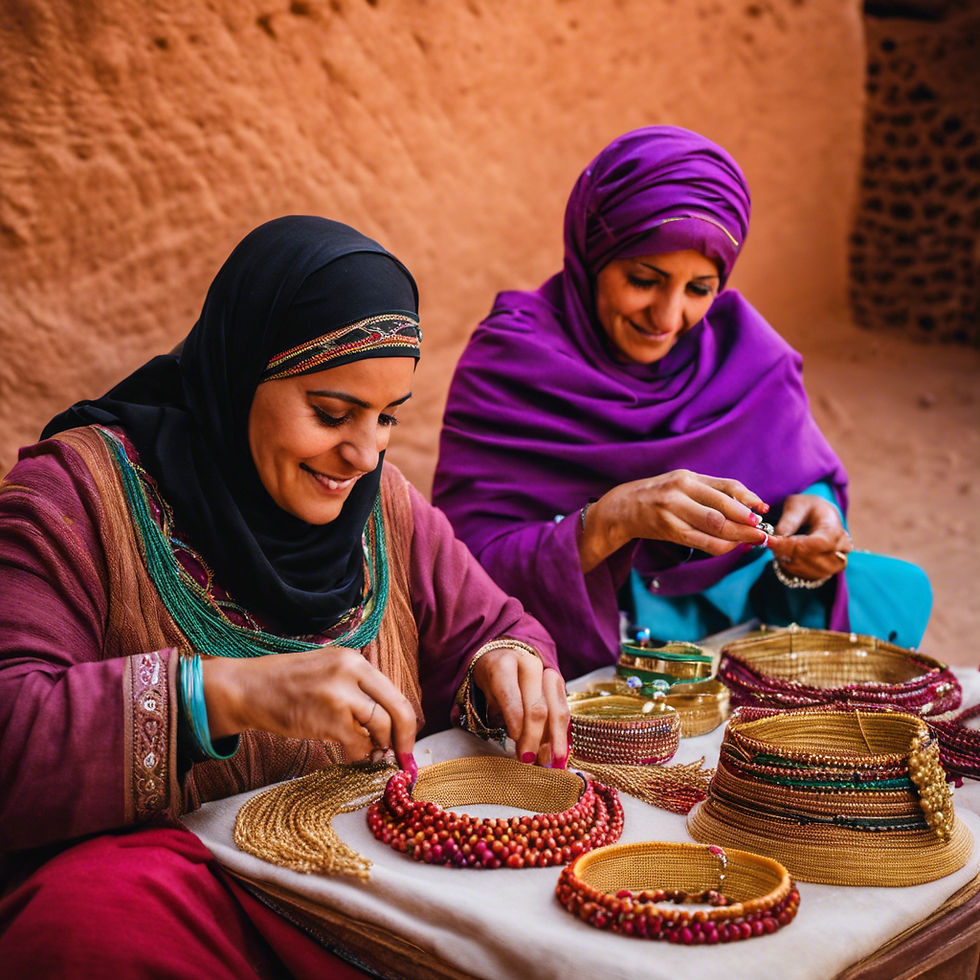the transformation of designs into magnificient handmade pieces
- abirhaoulani
- May 24, 2024
- 1 min read

Conceptualization and Design:
Inspiration: The process begins with inspiration, where designers draw ideas from nature, culture, personal experiences, or client requests.
Sketching: Initial sketches are made to visualize the design. These can be hand-drawn or created using computer-aided design (CAD) software.
Material Selection:
Choosing Materials: Select high-quality materials, including metals (gold, silver, platinum), gemstones, beads, and other components.
Sourcing: Ensure materials are ethically sourced and meet quality standards.
Prototyping:
Mock-ups: Create prototypes or mock-ups, often using less expensive materials, to refine the design and ensure it is practical for production.
Adjustments: Make necessary adjustments to the design based on the prototype’s feedback.
Crafting:
Metalwork: Cut, shape, and solder metals to form the basic structure of the piece. Techniques include casting, forging, and stamping.
Setting Stones: Carefully set gemstones into the metal framework using prongs, bezels, or other settings to secure them in place.
Detailing: Add intricate details through engraving, filigree, enameling, or other decorative techniques.
Polishing and Finishing:
Polishing: Smooth and polish the piece to enhance its shine and remove any imperfections.
Plating: Apply any additional metal plating if required, such as rhodium for white gold or gold plating for a richer color.
Quality Control:
Inspection: Thoroughly inspect the finished piece for any defects or inconsistencies.
Testing: Ensure the piece meets all structural and aesthetic standards, including durability and comfort.
Presentation:
Packaging: Package the finished piece in a way that reflects its value and craftsmanship, often in branded boxes or pouches.
Documentation: Provide certificates of authenticity, care instructions, and any relevant details about the materials and craftsmanship.





Comments